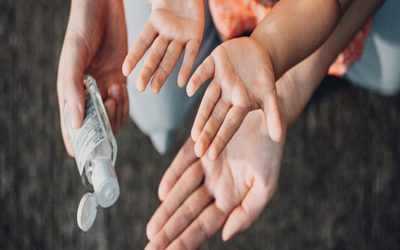Germs can get on your hands if you touch objects and surfaces that are contaminated by an infected person.
[the_ad id=”13371″]
If you forget to clean your hands and eat or touch your nose, mouth, or eyes, these germs can get inside your body and infect you. Germs are practically present everywhere around you. This is why cleaning your hands with soap and water or hand sanitizer is probably the most crucial step to prevent the spread of infectious diseases, including COVID-19.
The spread of the new coronavirus can be prevented by washing your hands with warm water and soap, or alcohol-based hand sanitizers can come handy when water and soap are not readily available. Make sure you follow these tips while using an alcohol-based hand sanitizer:
Proper Way to Use Hand Sanitizer:
- Alcohol hand sanitizers can result in alcohol poisoning if consumed, so keep them out of children’s reach. Teach them the proper way to use the sanitizer and monitor them while they disinfect their hand.
- Use just a coin-sized amount on your hands, and avoid using a large amount of the product.
- Make sure you rub your hands together for at least 20 seconds, covering your entire hand.
- Touching your eyes, mouth, and nose immediately after using an alcohol-based hand sanitizer can cause irritation, so avoid doing it.
- Hand sanitizers that contain more than 60 % alcohol are flammable. Never use these sanitizers before cooking.
- Let the sanitizer dry naturally and avoid wiping it off. Wiping it off before your hands are dry may not give the sanitizer enough time to work against germs.
Avoid Using Sanitizer if:
- Your hands are visibly dirty or greasy.
- You have chemicals on your hands.
- Soap and water are conveniently available.
- You come in contact with a person who has been exposed to germs that are not killed by hand sanitizers (For example, Clostridium difficile).
Source

